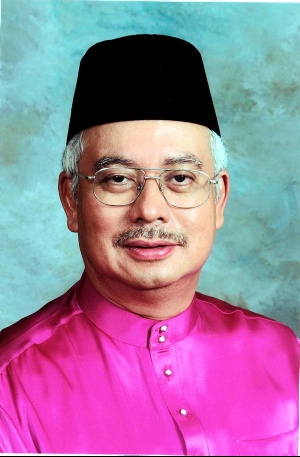The Challenge of Muslim Youth

In an age of self-determination, they crave freedom of opportunity. They aspire to world-class education. And they demand open and accountable government. Our challenge is to deliver those freedoms without sacrificing our traditions. But this is only possible if we show leadership and commit to reform.
Prime Minister Datuk Seri Najib Tun Razak, The New York Times
Profound change is underway in the Middle East and North Africa. It is too early to be definitive about causes, but I believe there is a common thread: young people in Islamic societies face an opportunity deficit.
The Arab awakening was driven by youth, organized by technology, and fired by a hunger for political change. In seeking more open societies and more responsive governments, young Arabs demonstrated a yearning for democracy. But they also expressed a deep sense of loss — not just of personal or political freedom, but of opportunity.
This unrest was the result of a basic misallocation of resources. Not natural resources, or capital, but people. The underrepresentation of youth in the economy created conditions in which tensions could grow — tensions that were fanned by a lack of political reform. Politically and economically disenfranchised, young people found an outlet in protest.
These pressures are not unique to Arab countries; they are felt throughout the world. Many young Muslims see no opportunities for themselves and do not feel they have control over their lives or a stake in their nation’s future. Such pessimism leads to disengagement. We risk losing a generation of young Muslims to apathy and extremism.
As a leader of a majority-Muslim nation, I believe Islamic countries must better understand what young people aspire to. This means comprehending two great changes affecting their lives.
The first is demographic: The Muslim world is experiencing a “youth bulge.” In 2010, people under 30 comprised about 60 percent of the population in Muslim-majority countries. A younger population means a bigger labor force. Higher investment and capital is needed to utilize this spare capacity. A big demographic change can warp fiscal policy for decades, as “baby boomer” countries are discovering. In social terms, the short-term impact can be even greater. A youth bulge introduces latent energy into a nation’s economy and society. Left untapped, it can become a destabilizing force.
In 2010, youth unemployment in the Middle East was 25 percent; in North Africa, 24 percent. Such levels are toxic. When young people lack opportunity, they grow restless. Dependency robs them of their dignity; without an economic stake in society, they can lose their sense of belonging. That can spill over into hostility to the state. From 1970 to 2000, eight out of 10 countries experiencing new civil conflict had populations in which 60 percent were under 30.
The second great change is technological. Twenty-one years ago, there were no Web sites; today, there are more than half a billion. In the space of one lifetime, the Internet has opened up opportunities that were previously inconceivable.
The age of information has its own generation, the digital natives — those who have only ever known a connected world. They expect information to be free, democracy to be responsive, communication to be global. They want an active role in the digital economy.
Empowered by technology, young people can articulate their frustrations to a global audience. This has a profound implication: the emergence of a new, international political consciousness.
These two forces — demography and technology — shape young people’s aspirations. In an age of self-determination, they crave freedom of opportunity. They aspire to world-class education. And they demand open and accountable government. Our challenge is to deliver those freedoms without sacrificing our traditions. But this is only possible if we show leadership and commit to reform.
Access to education is improving, but many young people still find that their qualifications do not match the opportunities available, so we must focus on vocational and technical training. We should also continue to open our economies: 23 percent of the world’s people are Muslim, but the 57 members of the Organization of Islamic Cooperation conduct just 8.3 percent of global trade. Structural reforms must be pursued so that our private sectors become more dynamic. We must reform public services and confront institutions that stifle opportunity, remaining ever vigilant against corruption.
We must also respond to technological change. Our starting point must be recognition of the fundamental principle of the Internet — its autonomy. It should stay that way. This does not mean unregulated behavior, but independence. We should equip our youth with the skills to think critically about sources, to understand that just because information is free does not mean it is accurate. But the online space should remain one in which the free exchange of views is encouraged, in the best traditions of discourse.
As a Muslim nation, Malaysia faces many of these challenges. I believe we should see our youth not as a liability, but as an asset. They are an untapped resource that can lay the foundations for great success. Economic and political reform can give young people what they aspire to: a future defined by opportunity, not dependency. It is time to realize the hidden wealth of Muslim nations.
Najib Razak is prime minister of Malaysia.

